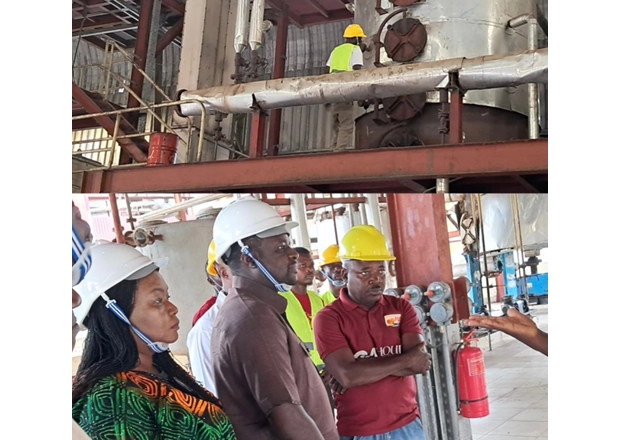The revitalization of PBC Shea Limited, a state-owned shea processing factory located in Ghana’s Savannah Region, marks a significant step towards boosting the country’s shea industry and creating much-needed employment opportunities. Commissioned in 2012 but dormant since 2019 due to financial constraints, the factory’s reopening under President John Dramani Mahama’s 24-hour economy policy signifies a renewed commitment to maximizing the economic potential of shea nut processing. With a projected annual processing capacity of 130,000 to 150,000 metric tons of shea nuts, valued at approximately $118 million, the factory is poised to become a major player in both local and international shea butter markets. Its production of 100% natural, refined, and unrefined shea butter caters to a diverse range of consumer needs and preferences, further solidifying its potential for economic success.
The reopening of PBC Shea Limited has been met with enthusiasm and optimism, particularly by the factory’s board and management. Reverend Aaron Fant, Board Chairman, lauded the dedication of the staff and expressed confidence in the factory’s ability to fulfill its mandate of job creation and economic growth, particularly under the 24-hour economy initiative. This policy aims to maximize productivity and efficiency by operating around the clock, thereby increasing output and generating more employment. He highlighted the importance of value addition through local processing, advocating for a government ban on the export of raw shea nuts. This measure, he argued, is vital for ensuring a consistent supply of raw materials for the factory and fostering the sustainable development of the shea industry as a whole. This would ensure that Ghana benefits from the entire value chain of shea production, from raw nut processing to the export of finished products, creating a more robust and profitable industry.
The call for a ban on raw shea nut exports reflects a broader strategy to maximize the economic benefits derived from shea processing within Ghana. By processing the nuts domestically, the country retains a greater share of the value-added profits, rather than exporting raw materials and importing finished shea products at higher costs. This strategy has been successfully implemented in neighboring countries like Nigeria, Burkina Faso, and Togo, further strengthening the argument for its adoption in Ghana. These countries serve as successful examples of how restricting the export of raw shea nuts can boost local processing industries, create more jobs, and generate higher revenues. The success of this policy in those nations provides a strong case for Ghana to also regulate its raw shea export to maximize its economic potential.
The managing director of PBC Shea Limited, Alhaji Abubakari Abdul-Mumin, echoed the board chairman’s sentiments, expressing gratitude to President Mahama for reviving the factory and emphasizing the need for a ban on raw nut exports. This restriction would ensure a stable supply of raw materials for the factory, enabling it to operate at full capacity and create more job opportunities for Ghanaians, particularly youth. The factory’s location within the Savannah Region is strategic for local economic development. The factory can become a central market for the communities there involved in handcrafting raw shea products, creating a symbiotic chain between old cottage producers and modern factory producers. This could lead to an increase in average local income, a potential reduction in unemployment, and an overall improvement in life’s quality.
The successful revival of PBC Shea Limited holds significant promise for the economic development of the Savannah Region and Ghana as a whole. The factory’s potential to generate employment, particularly for women and youth, is crucial for poverty reduction and economic empowerment. Moreover, by adding value to locally sourced raw materials, the factory contributes to strengthening the national economy and reducing reliance on imported shea products. The increased income generated from processing and exporting finished shea products can be reinvested into further development and expansion of the industry. This will also empower the local farming communities involved in shea production, leading to increased prosperity and stability.
The long-term sustainability of PBC Shea Limited depends on several factors, including consistent government support, access to finance, and the implementation of policies that encourage local value addition. The call for a ban on raw shea nut exports is a crucial step in this direction, as it would ensure a reliable supply of raw materials for the factory and stimulate the growth of the local shea processing industry. It also needs to be complemented by comprehensive farmer support and cooperative programs to help farming communities produce an adequate supply of high-quality shea nuts at fair prices and ensure their involvement in the industry’s economic benefits. The success of this venture further underscores the importance of investing in local industries and adding value to raw materials as a strategy for sustainable economic development. This model can be applied other related industries. This could lead to inclusive and sustainable economic growth, improving the lives of Ghanaians and contributing to the overall growth of the nation.














